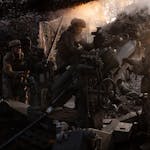This weekend the leaders of 20 of the world's major economies gather in China to talk about the global economy and the threat of terrorism, but it's the sideline issues that may capture attention:
Britain-China
Prime Minister Theresa May will attempt to smooth over tensions that erupted after she postponed approval of the $24 billion Hinkley Point nuclear power plant in England. China's $8 billion investment in the facility was the biggest deal announced during President Xi Jinping's visit last October, when he proclaimed that the relationship was in a "golden era." May has since sent a letter to Xi expressing her desire to enhance ties. Xi will want to hear that she is inclined to proceed with the project.
Missile shield spat
Relations between Seoul and Beijing have become so frosty, so fast, that there are doubts over whether Xi will meet at the G-20 with South Korean counterpart Park Geun Hye, who has in the past been received warmly. That's after Park said she would deploy a U.S. missile shield on her country's soil. While it would be for protection from North Korea, China says the Terminal High Altitude Area Defense system could be used against it. There's been some talk already of punishing South Korea, which needs Chinese trade, tourism and investment. Russia is also not a fan.
Turkey vs. U.S.
Turkey's Recep Tayyip Erdogan and President Obama will meet for the first time since Erdogan suppressed an attempted coup in July. The Turkish leader says that Fethullah Gulen, a self-exiled Islamic cleric, planned the coup from his U.S. home and should be extradited.
Erdogan has started to mend ties with Russian President Vladimir Putin that frayed after Turkey shot down a Russian military jet near the Syrian border last November. If things sour between the U.S. and its key NATO ally, it could have implications for the Syrian conflict, as Turkey provides a military base for U.S. airstrikes against the Islamic State in Iraq and the Levant.
East China Sea
Relations between North Asia's two largest economies, China and Japan, are in a rough patch over disputed islands in the East China Sea. In recent weeks, Chinese coast guard and fishing boats have been frequently spotted in what Japan regards as its territorial waters. Japan reportedly plans to develop surface-to-ship missiles to defend the remote islands.
Australia-China freeze
Tensions are brewing between Australia and China amid Australia's criticism of China's actions in the disputed South China Sea, and given the government's decision to block the potential sale of an electricity grid to a Chinese company on national security grounds. Prime Minister Malcolm Turnbull may use any meeting with Xi to attempt to allay concern that Australia is anti-Chinese investment.


